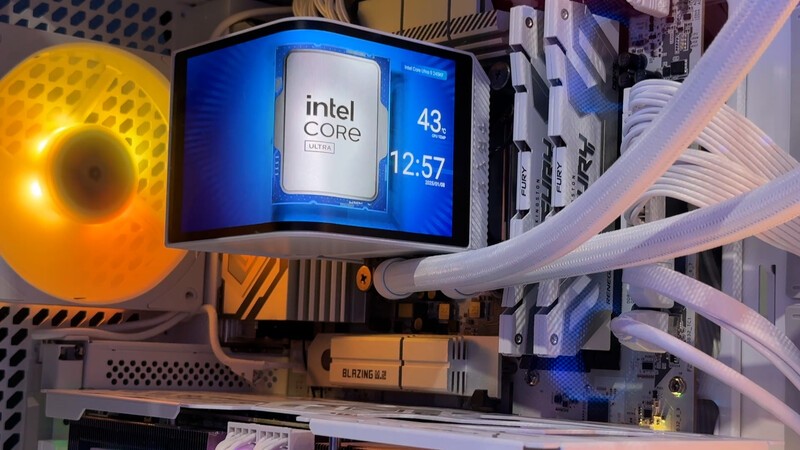
The tech year doesn't kick off on January 1st, it officially begins whatever day the Consumer Electronics Show in Vegas starts. This year that was January 7th. The show gave us a glimpse of the screens, chips, and tech that will be powering our homes and lives in the year to come!
Amidst the many, many announcements from some of the world's biggest brands was some exciting news from Intel. The Core Ultra Series 2 processors were introduced, and there were even some devices on hand to test out!
2024 was the year that the concept of AI PCs began to resonate with consumers, and in 2025, the AI PC is poised for growth. Where will you be encountering these extra special processors?
Here's a few places they could be popping up!
AI PC Laptops for work
For productivity, it's a no-brainer to consider an AI PC. With the Intel Core Series 2 processors, a dedicated section of the chip is annexed for AI-related tasks. Now, these could potentially run between the chips GPU and CPU, but they'd be sucking a lot of compute power and battery life to operate these continuous functions.
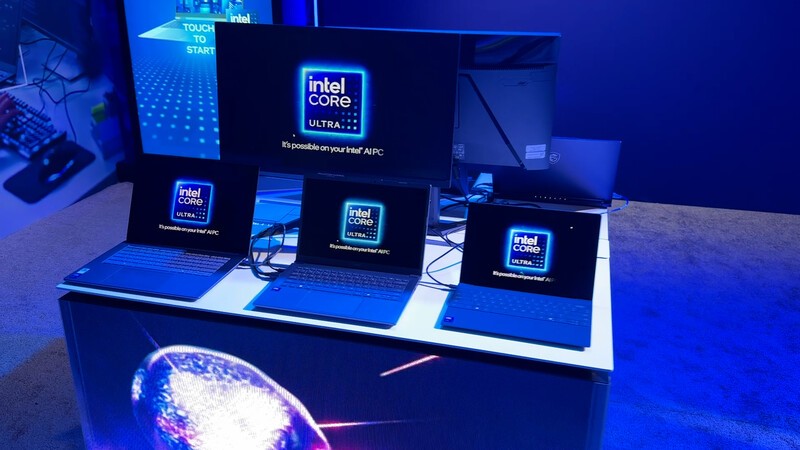
By freeing up the CPU and GPU to focus on their dedicated tasks instead of AI functions, it allows your computer more bandwidth for your work-related apps and programs to run faster. Bonus, battery improvements could mean you can ditch your charging cable if you're moving between different locations.
The Ultra 200V series processors can power complex AI functions with tools like Microsoft Copilot+ to help professionals manage their workloads and power through daily tasks…so there's more time for hobbies like gaming (which is about to get super powered), all while maintaining a high level of security for your work-issued devices.
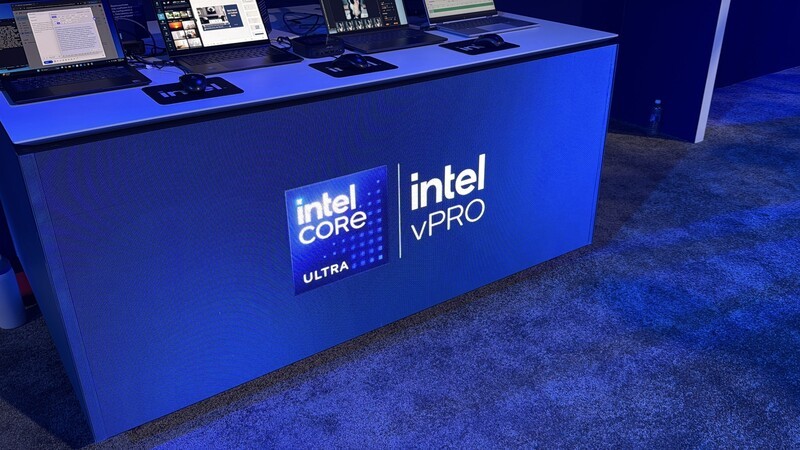
AI PCs for gaming
Touring the Intel Tech Showcase was my first experience with extremely high-end gaming on the Intel Core Ultra processors and, wow, was it amazing! My personal gaming PC is an Asus Zenbook with last year's Intel Core Ultra 7 processor. It's perfectly sufficient for my needs, but experiencing an immersive racing simulation, driven by the Intel Core Ultra 200 H series processors (slight pun intended,) was incredible.
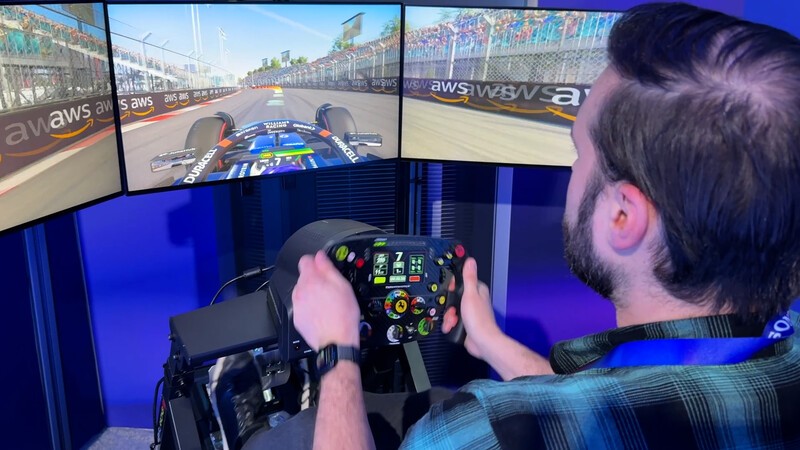
I experienced no lag while ripping around a virtual racetrack of the Las Vegas strip, all conveyed flawlessly, without a dropped frame between three 4K displays.
I didn't get the full specs of the PC that was sporting the new processor, but I do know I'm now experiencing major PC envy, now that I'm back to my "regular" gaming laptop! The 200HX series processors are also smaller, which will support more compact gaming laptop designs.
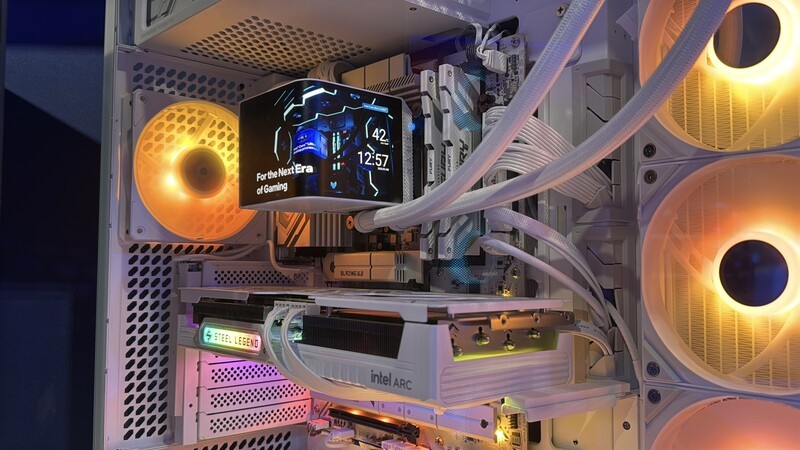
Beyond channelling the best graphics experience, as developers experiment with AI development in video games for things like enriching backstory for NPCs or providing walkthroughs and in-game support, there is so much potential for how the neural processing unit can help with on-device AI tasks to push gaming experiences into new personalized experiences that would previously have been impossible.
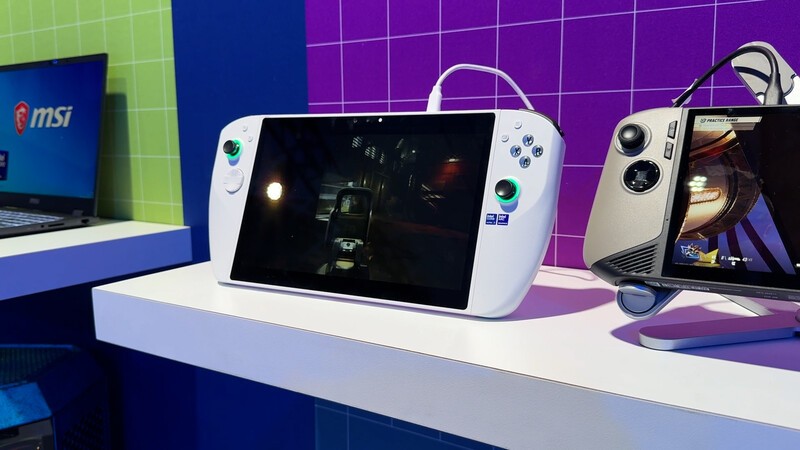
With improvements to power consumption, the next gen gaming processors from Intel will also be excellent companions for gaming on-the-go on devices like the MSI Claw, helping you sneak more gaming time into your lunch and coffee breaks throughout the day.
AI computing for automotive
Based on the examples above, it's easy to imagine how entertainment options for passengers in a vehicle could be enhanced through the technologies demonstrated in AI PCs. But Intel automotive also introduced some of their latest tech at CES, giving media a chance to go hands-on with some possible implementations.
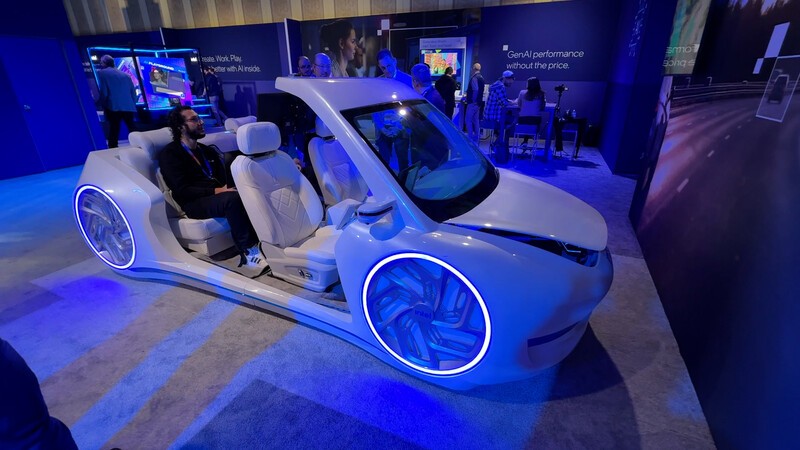
When Intel is thinking about cars, they're thinking about the whole picture. From inside the cabin, to under the hood, and the safety features powering everything surrounding the car, Intel's AI-enhanced automotive implementations have a lot of different implications for how they can aid the automotive sector.
The company hasn't revealed what automotive brands they're working with, but between the technology to optimize the powertrain of your vehicle assess hazards as you drive, and keep passengers entertained on their daily drives, there are some very futuristic possibilities with Intel in the automotive space.
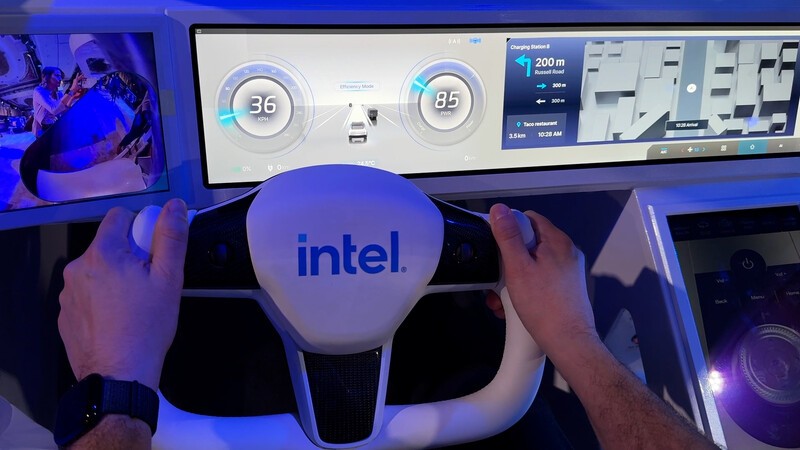
What will AI PCs do in 2025?
"AI" certainly isn't a new term but the ways it can be implemented are constantly changing. For most of us, if we're switching from a "regular" to an AI laptop, the most noticeable things will be changes in speed and improvements to battery life.
Depending on the manufacturer, you may notice some more slender, or light-weight builds as well, making it a little easier to tote your computer around between home and the office or when travelling for business.
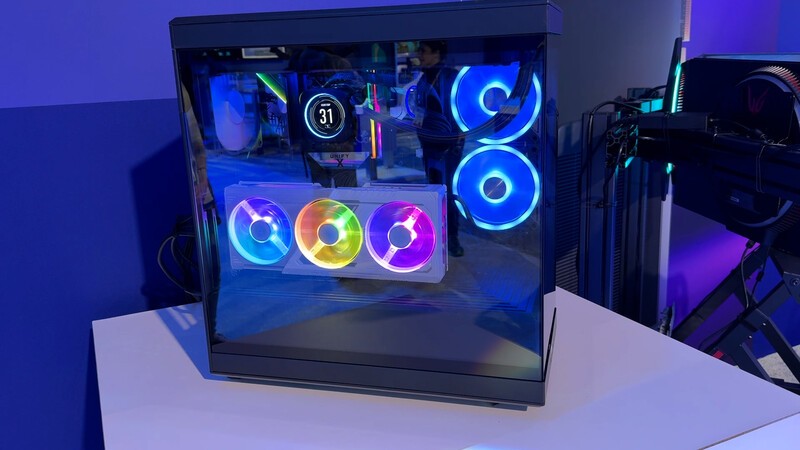
But, there's likely going to be a lot going on under the hood of your AI PC that you're not going to realize. For example, with on-device processing, there's more opportunity for your anti-virus software to be running constantly and assessing for threats from more locations, more accurately, than you'd find with a non-AI PC.
According to Intel, by the end of 2025, 40 percent of PCs in use will be AI PCs. The technology is there for developers to tap into, it's just a matter of consumers like you and I, learning more of the ways that we can use these machines to improve our workflows and leisure activities.
Read more

Intel’s New "Goldilocks" Chip: Why You Should Care About Ultra Series 3
We've been hearing rumors for ages, but it's finally official. At CES 2026 in Las Vegas, Intel dropped the curtain on their newest processor lineup: the Intel Core Ultra Series 3 (formerly codenamed Panther Lake). If you remember my previous article about Intel's reveal of Panther Lake back in September, the applications for this chip are huge. It's phsical shape is the same for a...

Beyond Buzzwords: How AI is Solving Real Problems In Canada
Several Canadian companies are doing profound and meaningful things with artificial intelligence. AI is far more than chatbots, and these companies prove there are some innovative uses lead by companies in Canada.

How AI is Changing Basketball (It’s Not What You Think)
AWS, the cloud based systems that are powering some of the coolest AI technologies in the world, are being embraced by sports leagues around the world. Recently, I got a firsthand look at how advanced AI is being used in basketball to help players and coaches and change the game-watching experience for super fans.

Inside Intel's Top Secret Mega-Factory in the Desert
Recently I had the very rare opportunity to tour a facility that the public just does not get access to. Fab 52 is a foundry in the Arizona desert where Intel makes some of the most advanced computer processors in the world.